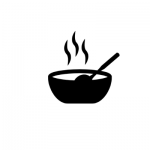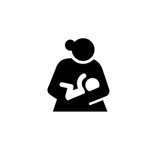
‘No Insurance for COVID-related work’
3 July 2020
The ‘Inside Districts’ series launched in April was a one-of-its-kind attempt to capture the experiences of district and Block-level officials, panchayat functionaries and frontline workers, on their challenges and best practices. Recently, we went back to some interviewees to understand how their situation has changed. Among them was an Anganwadi Worker & Block level Secretary Union in Bihar.
The interview was originally conducted in Hindi on 12th and 16th May 2020, and has been translated.
Q: You mentioned how Sevikas do not have health insurance. Has this issue been raised to the government? What has been the response?
AWW: What can I do alone? The union raised this issue but we have not received any response as of now. Because of COVID-19, we have not received any additional insurance.
Q: Are you facing any other challenges? What is the support you need to do your job better?
AWW: We are facing a lot of challenges currently. We have to go door-to-door to conduct surveys with the ASHA sisters.
I think a training programme should be conducted specifically on Coronavirus.
Q: Are you getting any remuneration for the survey work that you are involved in currently?
AWW: No, we are not getting paid anything extra for that. However, we had a conversation with the Lady Supervisor who told us that we will get Rs. 200 per day. This will be given by the Health Department.
Q: Are other facilities like supplementary nutrition, immunisation being provided?
AWW: Take Home Ration is being distributed to people. For children in the 3-6 years age group, ration is being given instead of cooked food once in a fortnight.
The Anganwadi worker is a community based frontline honorary worker of the Integrated Child Development Services. Primarily, her role is to run the Anganwadi Centre (a site for delivering basic nutrition and health services) in the village with the help of the Anganwadi Helper and deliver key nutrition services. These include serving hot cooked meals and distributing take home rations under the supplementary nutrition programme, organising non-formal pre-school education activities, counselling on health and nutrition related issues, weighing children, and maintaining information and records.
The AWW has to work closely with the ASHA and ANM to deliver nutrition services, and has to work with members of the community as well. To learn more about the ICDS scheme, read the brief here.





